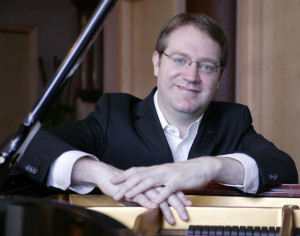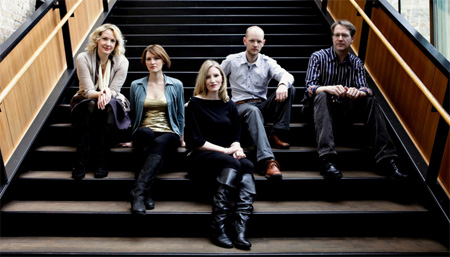
At the risk of sounding like an Internet meme, one does not simply perform Olivier Messiaen. A performer must take certain risks, and prepare for the very real possibility that the performance may not show the mysteries of the piece. Minnesota-based pianist Matthew McCright, a member of the piano faculty at Carleton College and pianist for the new music group Ensemble 61, has proven to be an intrepid explorer of new music, and knows where to go to find the inner machinery of Messiaen’s works. In his fifth CD release, Contemplations: The Music of Olivier Messiaen (available from Albany Records), McCright tackles six of the Vingt Regards sur l’Enfant-Jésus (Twenty contemplations of the infant Jesus), as well as the eight Préludes from Messiaen’s early output.
The six Regards chosen by McCright work well as a sub-unit of the full collection (which would take nearly two hours). McCright opens the CD with the ten-minute “Regard du Père” (“Contemplation of the Father”). This piece, the first of the Vingt Regards, requires a deft, sustainable touch, and McCright proves equal to the task, never letting the sound overwhelm the listener. This is Messiaen at his most introspective, and McCright lets the music breathe and meditate. McCright does get a chance to show off impressive technique with the sixth track, “Noël” (“Christmas Day”), which depicts the joy of the Nativity and the sounding of bells throughout all Christendom. The pianist has done his homework throughout the Vingt Regards, bringing Messiaen’s many leitmotivs to the listener’s attention without being pedantic.
In the Préludes of 1929, Messiaen is paying tribute to Debussy, but goes beyond Debussy’s vocabulary to lay the foundation for the language and mysticism we find in the later Vingt Regards. The backwards chronological focus of the CD provides a nice contrast to the “this happened then this happened then this happened” path that many performers have taken in the past with recordings of these works. McCright approaches the Préludes in a manner that is both appropriately athletic and musical; this is most obvious in the final section of the third movement, “Le nombre léger” (“A light number”). McCright proves that for Messiaen, “light” need not mean “insubstantial.”
McCright gets Messiaen, and that is no small feat.
